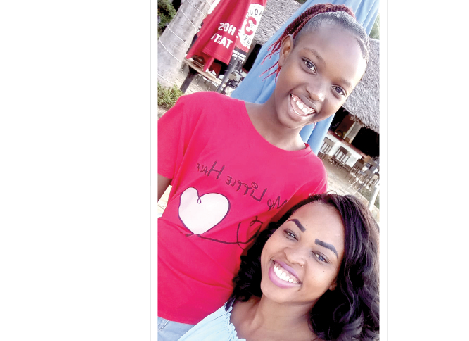Sleep-learning crucial in behaviour modification
By Jasmine.Atieno, August 17, 2022A few days after a child is born, they can already tell who their mother is by picking out the familiar voice and feel more calm and at home when in her arms.
This, experts say is because when their hearing starts to develop around the second trimester and third trimester, they can listen out to their mother’s voice and other sounds outside the womb. Mum’s voice, in particular, is conducted through her own body. As you talk, sing, or read aloud, your voice vibrates and amplifies inside of your body.
On her third trimester, Sandra Atieno swears that her baby can hear and respond every time she speaks to him or plays soothing music.
“I started speaking to him at four months after reading somewhere that it helps in bonding. I also compiled some soothing music from YouTube. My husband and I talk to him all the time… mostly before meals,” shares Atieno.
While speaking to babies in the wombs positively influences their brain development, psychologists equally believe that speaking to infants and toddlers while in their sleep serves greatly in influencing their behaviours. You can talk about the purpose you want your child to achieve while finishing the sentence with loving words.
For example; if you want your child not to be aggressive or fight with his friends, while they are sleeping you can whisper… “My lovely child, tomorrow you will play nice, you will not fight and you will have so much fun sharing with your friends. I love you.”
As Esther Mali, a mother of one shares, she has been doing this in form of affirmations from the time she could hear her unborn baby kick to date and it has gone a long way.
“Words of affirmations are key! Watching your baby sleep is one of those precious moment you should make use of. I find peace and calmness when I watch her… and I always speak blessings throughout. Mostly, I speak and prophesy while she’s asleep. Other times, I look at her while playing or going to school and say something silently. She is a peaceful child. And I believe these thoughts and prayers for her contribute a lot,” shares Mali about her daughter Angelina.
You may call them prayers and sleep affirmations, psychologists call this important tool hypnopedia. When the child is sleeping, it is said that the words go directly to the unconscious, which hears 1,000 times more than the conscious.
“Hypnopedia also known as sleep learning, is the process of learning while asleep. It is a form of neurolinguistic (NLP) Programing technique that allows for the reprogramming of the mind for various purposes. It could be modification of behaviour. There is a school of thought that supports hypnopedia and another that does not. However, numerous studies indicate that sleep enables a person to absorb what they learned while awake, hence making sleep a necessity to learning and memory formation. Sleep is connected to memory consolidation and cognitive enhancement. When asleep, the brain processes information learned while awake. Therefore, instead of cramming all night for an exam. Read and have enough sleep,” says psychologist, Tracy Nyaguthii.
The psychologist says hypnopedia happens when asleep because the unconscious mind is much more receptive to the messages it receives. A large part of our lives is directed by the unconscious. Our thoughts, actions, emotions are as a result of the different beliefs rooted in the unconscious mind. If the beliefs are negative or maladjusted, they can cause problems to the life of an individual, because they will live their lives influenced by those negative belief systems.
“Hypnopedia is achieved during Rapid Eye Movement (REM) sleep cycle, when the child is in deep sleep two hours after they have fallen asleep. Though their eyes are closed, they can be seen moving quickly. The barriers of the conscious mind are removed, hence it is easy to access the unconscious mind. In babies, the brain is actively accepting any incomings. Hypnopedia involves inducing positive and encouraging affirmations. For instance, letting your child know that you love them,” she shares.
Whereas research demonstrates that learning through sleep in children is possible to some extent, most learning acquired will not stay in conscious mind when awake. For instance, complex learning such as learning a foreign language vocabulary at night when asleep — you will not wake up remembering the words. Most learning is usually done when an individual is conscious.
“That notwithstanding short phrases such as positive affirmations can easily be absorbed in the unconscious. With repetition both when awake and asleep, this can enhance mental health and emotional development in children such as enhancing self-esteem, modification of problem behaviours and enhancing their capacities. Although hypnopedia is a useful tool, words spoken to our children consciously (when awake) are equally important. Parents need to be careful what they tell their children. If it is a negative statement, they will believe it as truth. No matter how far from reality the statement is,” advices the expert.
When it is done 21 times in a row, this tool helps balance emotional, spiritual and physical energy for children helping them to feel safer, become happier children and feel tremendously loved by their parent and caregiver.
